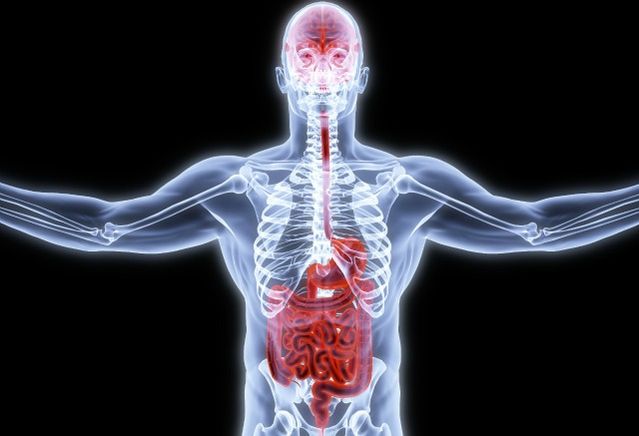Health
Can Gut Bacteria Control Mental Health?
Science shows a powerful connection
Posted December 14, 2015

In the Victorian era, people feared something known as “auto-intoxication.” They believed that the waste located within the colon could seep into their guts and gradually poison them, leading to depression, anxiety and even psychosis. Patients were treated with enemas and — in some extreme cases — bowel surgery.
By the 1920s, the diagnosis of auto-intoxication fell out of favor. How silly we were, thinking that bacteria in the intestines could influence our behavior!
As it turns out, that idea might not be so ridiculous after all.
The wonderful world of microbes
The microorganisms within our gut are as busy — and numerous — as a colony of ants. Researchers have identified 2 million unique bacterial genes within the human body, dwarfing the mere 23,000 genes responsible for our cellular DNA.
These microbes play a subtle, yet invaluable role in human health. Some play a role in preventing tumors. Others fight obesity and inflammatory bowel disease. When the delicate balance between the host (you) and the bacteria is altered, disease is not far behind.
Recent research has elevated our microfauna to an even higher status. The microorganisms in our gut secrete chemicals that are identical to the ones used by our neurons to communicate with each other. These chemicals include dopamine (the so-called “reward” chemical), serotonin (the “sleep and mood” chemical) and GABA (the “relaxed” chemical).
In other words, the bacteria in our gut may very well influence how we think and feel.
Gut bacteria can change behavior
In 2011, a group of scientists published a study in the well-regarded scientific journal Proceedings of the National Academy of Science (PNAS). This team wanted to determine whether changing an animal’s microbial profile could alter that animal’s behavior.
First, they took healthy mice and placed them in a small container filled with water in what is known as a forced swim test. During a forced swim test, the mice swim around for a bit, attempting to climb up the edge or touch the bottom with their feet, before ultimately recognizing that escape is impossible and choosing to float. Depressed mice choose to start floating earlier than healthy mice, owing to the hopelessness associated with the disorder. Unsurprisingly, antidepressants allow depressed mice to swim for longer periods of time.
Next, the researchers fed a subset of the mice a special broth infused with Lactobacillus rhamnosus, a bacteria that is used to create probiotic yogurt. Lactobacillus is also known for releasing tremendous quantities of GABA, a neurotransmitter that calms down cellular firing. (In other words, it quite literally “soothes the nerves.”) After consuming this broth over a period of several weeks, the mice demonstrated longer swimming times and less forlorn floating than their non-broth-consuming peers.
This revolutionary study is only one example of the tremendous research that has been conducted on gut bacteria and mental health in the last five years. One study found that mice with repetitive behavior and diminished social skills benefited from a strain of the bacterium Bacteroides fragilis. Another study found that mice born without microbes had decreased anxiety and more of a daredevil personality. Yet another study observed that taking bacteria from an anxious mouse and inserting it into a daring mouse actually made the daring mouse more nervous; in other words, the bacteria transplant gave the recipient aspects of the donor’s personality.
What does this mean?
Even the most encouraging, most well-designed mouse study risks being meaningless once it is applied to humans. Bacteria can influence a mouse’s behavior, sure — but what about us?
There are some encouraging signs that our microbes contribute to our mental health. For instance, last year a group of researchers in Norway examined feces from 55 people and found that certain microbes were more likely to be found in depressed patients. In another study, researchers used functional magnetic resonance imaging (or fMRI) to take pictures of the brain and found that women who consumed probiotic yogurt twice a month had a more relaxed, less emotionally charged brain than controls when shown images of frightened or angry people.
More research is necessary before we start binging on probiotic yogurt (or reverting to the colonic purges of yore), but thankfully, that research is underway. Scientists even hope that they may someday be able to treat mental illness through bacterial broths and fecal transplants.
In the meantime, try to eat a healthy diet. Your brain just might be depending on it.
Contributed by Courtney Lopresti, M.S.




